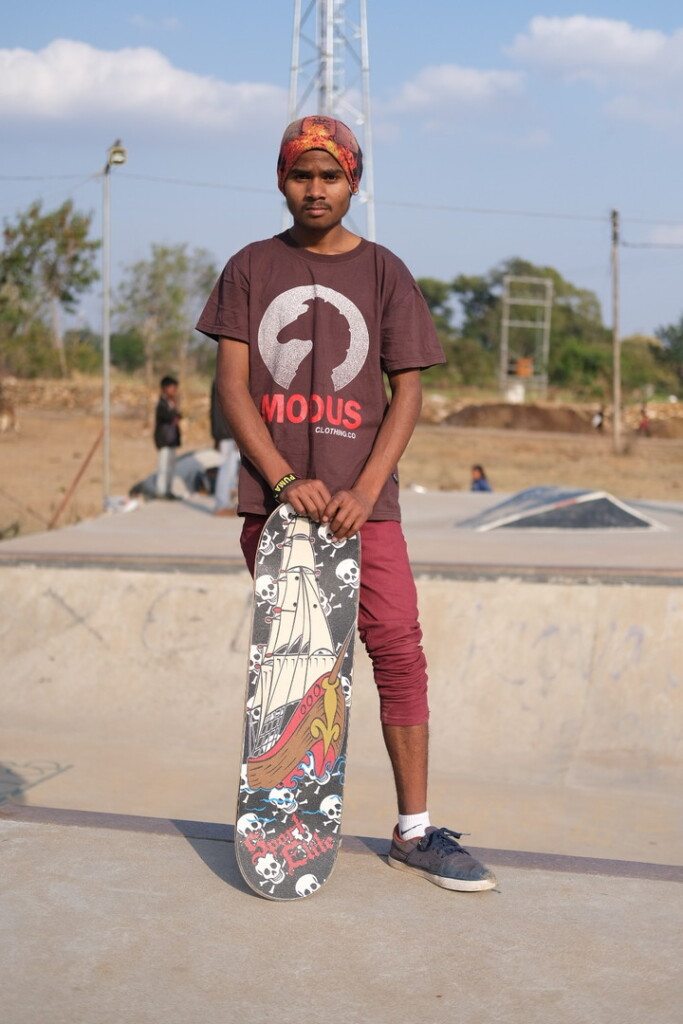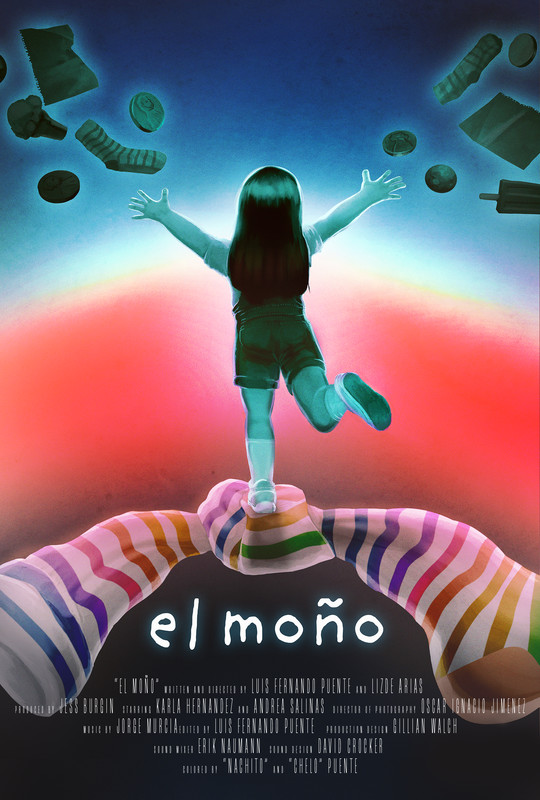In previous years, the Utah Made Film program was split into screenings of works by student and professional filmmakers but this year’s format for Fear No Film at the Utah Arts Festival blends both classes together in two separate hour-long screenings.
The 13 films are a good yardstick of the strengths which mark Utah’s independent filmmaking community. Included in the group this year are two past Fear No Film prize winners: Luis Fernando Puente and Jared Jakins. Six of the thirteen films are documentaries, including one featuring a young cowboy poet who appeared on the literary arts stages three years ago at the festival.
Utah Made 1 (June 23, 8 p.m.; June 25, 6 p.m.)
Cowboy Poet is a short documentary, highlighting two individuals who had a major presence at the Utah Arts Festival in 2019. The film features Thatch Elmer, Thatch Elmer, now 18, from Harrisville, Utah. A Wyoming native, Elmer is passionate about the work and art of cowboy poetry that have encompassed several generations of his family, including Howard Peterson, his great-grandfather in Uinta County who shared the stories of his long life as a cowboy. Elmer appeared in 2019 on the Literary Arts stage. The film’s director, Jared Jakins, won the Grand Jury Prize for Best of Show at Fear No Film, also in 2019, for El Desierto. A lot has happened in Elmer’s life in the last three years, and Jakins’ portrayal is sensitive and compelling.
Every Street SLC, directed by Corey and Parker Lester, is a documentary about Bryant Heath, who during the pandemic, decided to run on every street within Salt Lake City. “There are many important experiences that are held captive by our unwillingness to venture beyond our comfort zones,” the directors’ artistic statement indicates. “Bryant Heath’s journey to learn more about the city and its people has the power to move anyone outside of their safe space. This story resonated with us as filmmakers as it displays someone who challenged what they thought they already knew about their home.”
With such a strong following of skateboard enthusiasts in the Utah, the documentary short Janwaar explores how a skatepark in an small village in India is more than just a slice of Americana.it becomes a motivating platform for rewarding a young generation which no longer accepts or sees their country’s caste system and entrenched gender discrimination as relevant. Danny Schmidt, who earned a bachelor of earth science degree at The University of Utah before going onto a master’s program in science and natural history filmmaking at Montana State University, is the director. He also won an NW Emmy award for cinematography for his DP work on the PBS/Independent Lens film Indian Relay and another for best topical documentary for Finding Traction on Netflix.
Scraps, which has a David Lynch vibe attached to it, is directed by Tony Rivas, who is a Westminster College graduate and who went on to earn a master’s degree in film studies at Chapman University. The story’s core premise arises when a young man brings his girlfriend home for the first meeting with his family.
The Man in The Tree, directed by Weber Keith Griffiths, resulted as a capstone film project for Griffiths to complete his degree at Brigham Young University. The story has a mythical frame, about a boy who is grieving after his mother’s death and encounters a mysterious creature in the woods who is trapped in a tree. The creature promises the boy that his mother will return if he chops the tree down so his spirit can be freed. The boy now finds himself in cosmological dilemma that he must resolve.
The Mill Creek Strangler, directed and written by Aaron Egbert Allsop, has the makings of a film destined for at least an audience favorite award, The story starts from a tantalizing premise: a local serial killer has arrived at the home of the person who apparently is his biggest fan. Allsop developed the concept about people who are more than just captivated by true-crime podcasts and series. “It got me thinking how some people are so obsessed with serial killers it would be like meeting a celebrity if they ever met them in person,” he explains in his artistic statement. “I enjoy writing stories that are absurd and have one foot in reality and another foot in fantasy. Another thing I wanted to do with this is play with shifting the power dynamics between the serial killer and his victim to see what it would be like if she was in control of the situation and not him.”
Utah Made 2 (June 24 and June 26, 6 p.m.)
El Moño, directed by Luis Fernando Puente and Lizde Arias, is about a girl who is upset that her favorite sock is missing and soon she discovers a magical way of recovering all sorts of lost toys and coins. But the lesson goes deeper than material objects, about the cultural traditions that risk being lost for generations who follow their immigrant ancestors. Puente won the festival’s Fear No Filmmaker Award last year for The Moon and the Hummingbird. That film was an outstanding allegorical narrative highlighting the tensions of immigration as seen from those who migrate.
Home Crag, directed by Tim Behuniak and Simon Fraser, centers on Little Cottonwood Canyon near Salt Lake City and proposed development projects including the gondola. The location is a significant destination for rock climbing and several enthusiasts are organizing efforts to conserve the area as it stands. The film features appearances by Olympic medalist Nathaniel Coleman, as well as Julia Geisler, executive director of Salt Lake Climber’s Alliance and USA Climbing CEO Marc Norman.
Many audience members will commiserate rightly with I’m Not a Robot, directed by Nate Stranzl and Brian Durkee. Simply, the story is about an elderly man who becomes totally frustrated by the captcha security questions when he tries to log into a website. But, the film enriches the premise handsomely with character depth. Filmed in Salt Lake City, the short features actor Thom Harrison. “He [did] a wonderful job of anchoring the absurdity in something real, taking us with him on this emotional rollercoaster from somber to surprising to sweet,” the directors write in their artist statement. “In the process of connecting with Thom on set and talking about the story, Nate realized another personal reason for telling this story. He had recently lost his grandfather, and was inspired by the way his grandma had processed the grief by finding new ways to connect with people and share experiences.”
Jump Seat, directed by Aaron Colborn, hits on all of the essential marks of a solid film: excellent acting, concise yet epic storyline, visually captivating effects and strong production value. As part of a criminal syndicate, Quincy is a driver who spends her nights moving mafia members around the city. The evening ratchets up the pace when she learns that one of her friends is being pursued by a hit man and the routine maneuvers of her work suddenly take on existential urgency.
My Friend Flip, directed by Cameron Till, is a short documentary about the experiences of Flip Twogood, a sound designer and mixer who records local bands in his Utah based recording studio.
No Dreams Left Behind, directed by Gareth Leah and Dylan Wineland, is a wonderfully executed cinematic short about why pipe dreams should never be considered as unrealistic or relegated to the realm of unattainable fantasy. A boy dreams about bikes and especially a motorbike but those aspirations are cut short at the root by a father who says that if he is adult enough to own a motorbike then he is old enough to take up all of the responsibilities of being an adult, including living independently. Now, at the age of 34, that boy realizes that “a sense that my time was escaping me consumed my thoughts. Life suddenly seemed finite. I felt that if I was to accomplish any of my dreams, I had to cast aside doubt, lack of knowledge, and apprehension, and lean into the unknown, just as I had as a boy.”
Symptoms of A Broken Heart, directed by Phil and Jack Hessler, was filmed at the Bonneville Salt Flats and is a poignant piece of cinematic poetry about a woman navigating the painful phases of coping with a recent breakup. Phil Hessler also was producer for two documentaries including Utah-based director Cole Sax: World Debut: From Outsiders to the Olympics, a 2021 film which chronicles the long journey of how skateboarding, surfing and sport climbing — three of the fastest growing sports in terms of engagement and visibility — made their way into the Olympics, and Second Sight, a 2019 short that covers cogently and adeptly multiple layers of the issues and factors that encompass the burden of blindness and vision impairment in developing countries and making cataract surgeries accessible.







1 thought on “Backstage at the Utah Arts Festival 2022: 13 films comprise two Utah Made Film programs in 19th Fear No Film”